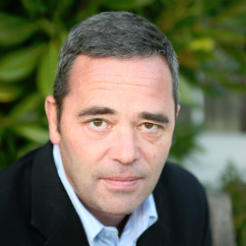Short term thinking at large charities is damaging the sector and causing fundraisers to lose faith with the profession, says Stephen Lee, professor of nonprofit management at Cass Business School.
So… another week and yet more Daily Mail and national broadcast (BBC News) fundraising exposés, culminating at the weekend in government legislation and a review of fundraising.
Yet right in the middle of it is an Institute of Fundraising National Fundraising Convention ‘celebrating’ fundraisers, and asking them to be the ‘Best They Can Be’.
Frankly, the increasingly hollow and vacuous response from the fundraising profession (and from fundraising leaders) to the public outing of miscreant, unethical and possibly unlawful fundraising practice by those within its ranks, begins to beggar belief.
So where has it all gone wrong? More importantly, what can we do to make it better?
Yes, there is a trust issue. Mine, it would appear, increasingly entails a falling out with the leadership of my own profession.
The fact is that it’s been going wrong for some time. And the bulk of the problem lies not within the smaller fundraising organisations, nor within the many commercial organisations that provide excellent support to contemporary fundraising practice across a range of different types of fundraising. Including, where it is done properly, telephone fundraising.
The fault lies more in the insouciant growth within many of our larger charities and the fundraising leadership that comprises them, of an endemic fundraising short termism which owes more to short term organisational commercial gain and to a culture of personal, professional self-aggrandisement than it does to an appropriate conceptualisation of the role, purpose and reward of the truly professional fundraiser.
Yes, in part there is clear evidence of commercial agencies engaging in unethical, dubious and at times unlawful practices – using aggressive, sometimes high pressure sales techniques to achieve their own short term advantage to the disadvantage of the donors and supporters they purport to serve.
This is not the fault (as has often been cited in the media) of the fundraising technique(s) employed; nor can or should it be concluded (wrongfully and simplistically as some have done within and outside our profession) that fundraising partnerships with commercial agencies should cease altogether. Both responses are wrong and miss the key point.
What it does mean is that the agencies concerned in such activities (where they are proven) should be rooted out and publicly thrown out of the profession. They should cease, or have ceased for them, the ability to trade; and so should the so called ‘fundraising leaders’ operating within the charities that employed them.
As a fundraising professional, my own personal loss of trust with my profession lies not so much with the disgraceful exposés of commercial malpractice which clearly have and continue to exist within certain organisations – this is bad practice and we need to root it out.
It lies more with the duplicitous, often complicit and inappropriate management and stewardship of these agencies by the professional fundraisers leading the charities that employ them, fundraising managers who turn a practised and deftly blind eye to what is operationalised by the agencies in the name of their organisation.
Both need to become something of the past, and quickly so.
The IoF has a code. It has established standards of practice against which individual and institutional behaviour can and should be judged and which form (or should form) the basis of continued legitimate membership of the organisation. What we need now as part of a wider response, is action by the IoF (not others) to start the process of turning this tide around.
Confidence is a related but separate matter. It is clear that current scope and detailed provision of law and regulation of fundraising is deficient – it needs, and is getting, urgent and considered review by fundraising professionals, by other stakeholder communities and by Parliament. My own view (contrary to that stated recently by NCVO chief executive Stuart Etherington) is that it is the scope, not the balance of self-regulation that is largely at fault.
As I first argued in a speech made to the NCVO fully 20 years ago this year, the effective remedy (whilst complex) is actually right before us and has been these past two decades. Amended appropriately to encompass the rigours of fundraising practice, the regulatory model governing advertising practice in the UK offers an efficient, effective and pragmatic way forward for fundraising regulation. The equally excellent suggestion by Adrian Sargeant that it should be funded through a top slice from gift aid revenue forms the basis for an IoF positive proposition for legal reform funded by those who will benefit the most from it and with the potential, in terms of scope and resource application, to revolutionise the regulation of fundraising practice.
Peter Lewis, chief executive of the IoF, is right to say that this is a matter of ‘judgement’, but it is a judgement that must be made, not continuously prevaricated upon and sent out for further genuflection and consultation. And once made, this ‘judgement’ must be clearly and unequivocally put to the test - a standard against which professional behaviour (personal and institutional) can, should and will be judged.
Quite simply, action and behaviour change must be seen to follow words. Without it, in the vacuum that continues to ensue, the media, policy makers and the public at large will simple make their own judgement and draw their own conclusions.
Professor Stephen Lee is professor of nonprofit management at Cass Business School.
He is an honorary fellow of the Institute of Fundraising.
To find out more about the Cass CCE and the MSc in Charity Marketing and Fundraising, please visit www.cass.city.ac.uk/charitiesmasters, email [email protected] or call 020 7040 5114
With thanks to Cass Centre for Charity Effectiveness for their support with this blog.









